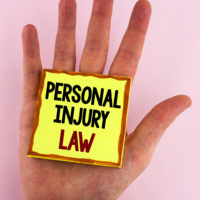FAQ On PIP: Questions On Personal Injury Protection Coverage

Florida is a no-fault state, meaning that most car accident cases are disposed of in working with insurers, rather than going to trial. In order to perpetuate the no-fault system, each driver is required to carry a certain amount of insurance coverage. This insurance is called personal injury protection (PIP). In theory, one simply submits their claims to their insurer and they are paid – but this is not always the case. Understanding how PIP insurance works can help take the guesswork out of dealing with your insurer if you ever are in an accident.
Do I Even Have PIP Insurance? Yes, if you own a car that is licensed in Florida or if you live with someone who owns a car that is licensed in Florida. When someone seeks to license their car, they must show proof of auto insurance that meets at least the minimum monetary levels – as of this writing, those minimums are $10,000 in PIP coverage, and $10,000 in property damage liability (PDL) coverage. In other words, if your car has a Florida license plate, you have PIP insurance.
Does It Only Apply When I’m Driving? No. It applies whether you are driving or a passenger in your own car or another person’s. The policy travels with the person, so to speak; any member of your household will be covered by the policy regardless of whose vehicle they are driving or riding in.
After An Accident, Do I Make Claims With Mine Or The Negligent Driver’s? Most of the time, with your own insurer. If you do not own a car – if you were a passenger in someone else’s, or if you were a pedestrian or bicyclist – you would make a claim with the insurer of the driver who struck you. Your PIP coverage is usually more there for you than for anyone else to use – some people remember this by focusing on the first word. Personal injury protection covers your injuries first.
What Is The 14-Day Rule? The 14-day rule was instituted when PIP laws were changed in 2012. Before then, there was no requirement that a person had to be treated within any length of time after their accident, However, after allegations of rampant fraud, the law was amended so that in order to receive PIP benefits, a person must be treated by a medical professional (the definition of “medical professional” is specific, defined in the statute) within 14 days of their accident. If you are not treated within this length of time, you are not entitled to any PIP benefits whatsoever.
What Is An Emergency Medical Condition (EMC)? An EMC is a specifically defined medical condition that must be diagnosed in order for you to receive your full $10,000 PIP benefits. If you are not diagnosed with an EMC when being treated, you will receive only $2,500 of medical benefits because your injuries are deemed to be less severe.
Ask An Attorney For Help
PIP issues are generally more simple than one thinks, but there are still questions and details that can confuse the average person. If you have questions, contacting a knowledgeable attorney can help. The Tampa personal injury attorneys at the Rinaldo Law Group are happy to sit down with you and help work out the best path for you and your loved ones to pursue. Contact our office today for a free consultation.
Resource:
flhsmv.gov/insurance/what-is-insurance/
